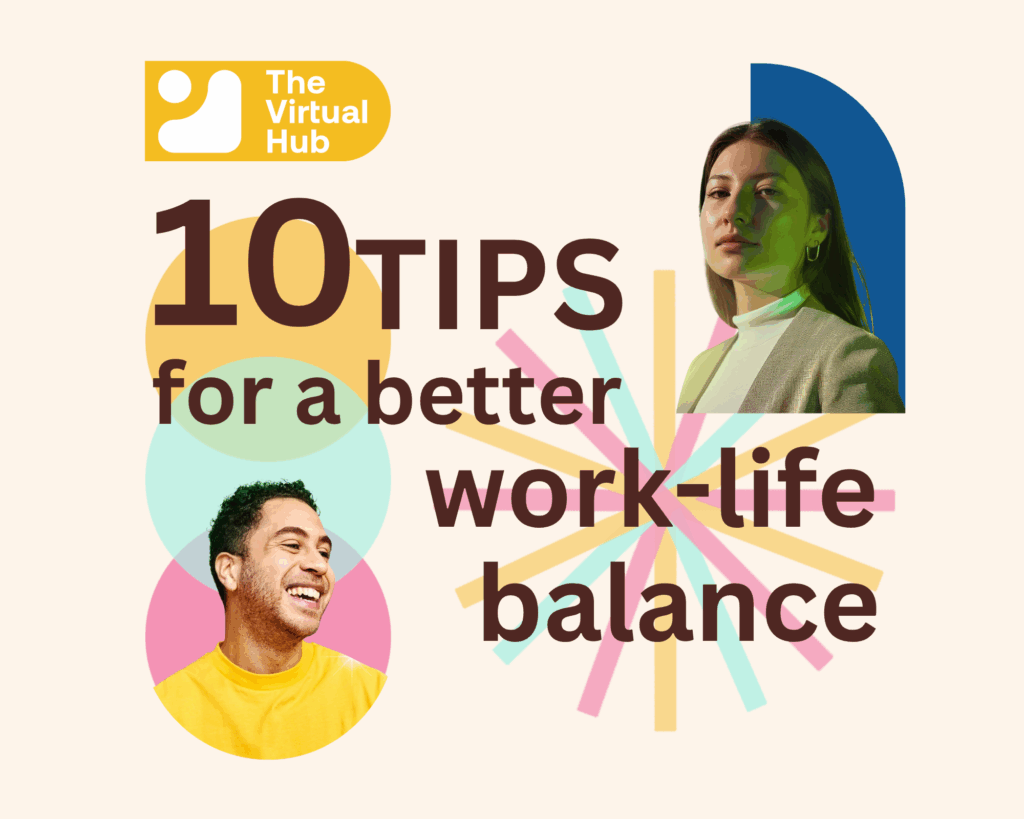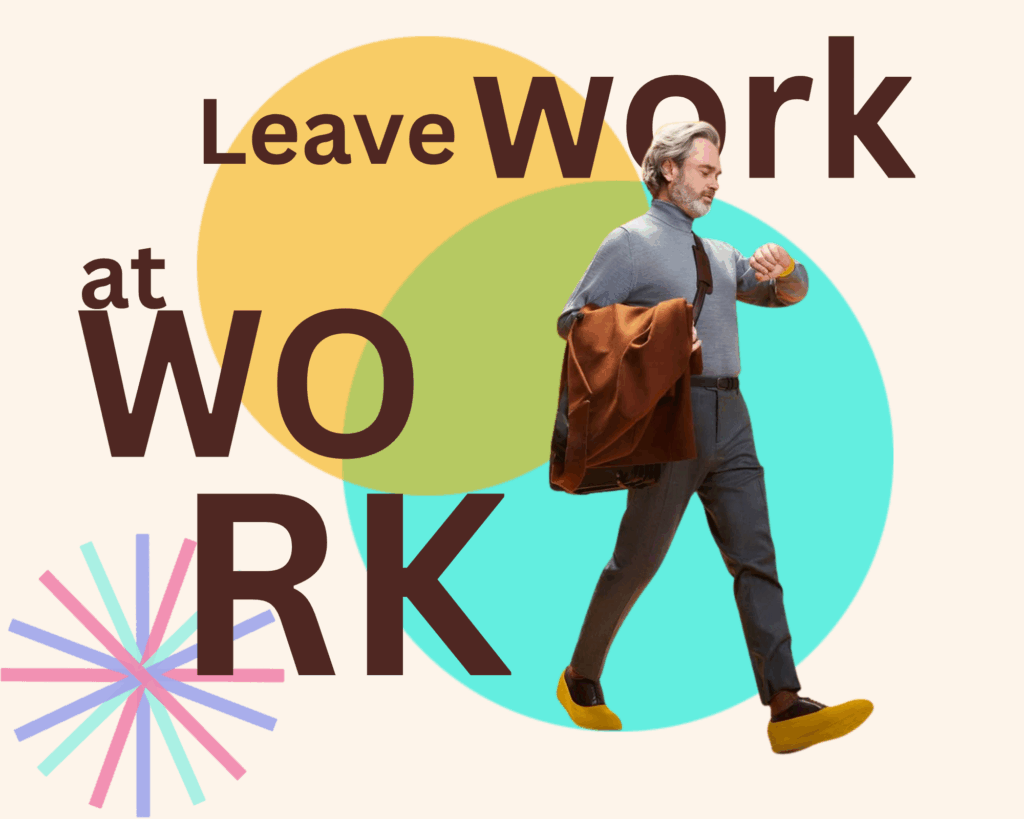
10 tips for a better work-life balance
1. Step away from the email

If you want to learn how to scale a business, focus on building smart systems and setting boundaries—instead of relying on constant after-hours communication, which often leads to burnout rather than real productivity..
Earlier this year, a report claimed that a French law banned employees from checking work emails after 6pm. Though untrue, it reflected familiar views of French work-life balance—long lunches, extended weekends, and a clear separation between work and personal life. In contrast, many professionals elsewhere still burn the midnight oil in the name of productivity. But should there be a rule against after-hours emails from bosses? “It would be impossible to enforce,” says Leeds-based life coach Melanie Allen. Still, the issue raises an important question: is constant availability truly effective? Companies serious about how to scale a business should consider whether always being “on” improves performance or simply causes burnout. Healthy boundaries, regular downtime, and intentional disconnection are often overlooked—but they’re essential for long-term success. Real growth doesn’t come from working nonstop. It comes from building systems and habits that support both high performance and human sustainability.
Boundaries Matter: A Key to How to Scale a Business

If you’re always available and feeling overwhelmed, it may be time to say no. Productivity expert Allen recommends pausing before agreeing to new tasks—take a moment to decide. If it’s a no, say it clearly and without apology. The Mental Health Foundation also urges employees to speak up when workloads become too much. As shown in the film Looking for Eric, even a simple “non,” as Eric Cantona puts it, can be a powerful step toward protecting your time and wellbeing.
If you’re always available and feel overwhelmed, it’s time to say no. Pause before agreeing to extra tasks. Take a moment to decide—don’t just say yes by default.
Instead, say you’ll get back to the person—then take a moment to reflect.
If your answer is no, say it clearly and without guilt. You don’t need to explain or make excuses.
The Mental Health Foundation also encourages speaking up when work becomes too much. Setting boundaries is essential to protect your time and energy. It’s also a necessary mindset shift if you’re serious about learning how to scale a business without burning out.
A great example comes from the film Looking for Eric, where footballer Eric Cantona teaches the power of refusal. Sometimes, a simple “non” is your best defence.
Work Smarter: Strategies to Help You Scale Your Business

3. Many people believe in working more and sleeping less, often citing figures like Margaret Thatcher who reportedly thrived on four hours of sleep. This idea, known today as “sleep hacking,” is challenged by US academic Matt Might, who argues that productivity—not just hours worked—is key to real output. The Mental Health Foundation echoes this, advising people to “work smart, not long,” by tightly prioritising tasks and avoiding time-wasting activities like unproductive meetings. Despite this, many still work inefficiently. The UK shows low productivity despite long working hours, leading to poor mental health outcomes—such as increased depression, anxiety, and irritability among workers.
Learning how to scale a business means working smarter, not harder. There’s a belief that working more and sleeping less leads to success. Margaret Thatcher is often cited—she reportedly thrived on four hours of sleep. Today, it’s called “sleep hacking.” But this trend is flawed, argues US academic Matt Might. He explains that productivity isn’t just about hours worked, but how much you produce per hour.
The Mental Health Foundation advises: “Work smart, not long.” That means tight prioritisation, time-boxing tasks, and avoiding low-value activities like unstructured meetings. We’ve all sat through meetings filled with confident voices saying nothing new.
Sadly, many of us aren’t working smart at all. UK productivity remains low, despite longer working hours than some European neighbours. The toll is serious: 27% of long-hour workers feel depressed, 34% anxious, and 58% irritable.
If you’re serious about how to scale a business, smart work habits—not sleepless hustle—will get you there.
4. Leave work at work

To maintain a healthy work-life balance, create a sense of closure at the end of your workday. Before leaving, write down any unfinished tasks or lingering thoughts, then shut your diary, turn off your PC, and mentally mark the workday as done. If that’s not feasible, use the “stop-breathe” technique—take a deep breath and mentally acknowledge that the workday has ended, whether you’re exiting the office, boarding transport, or sitting in your car. The Mental Health Foundation adds that if you must bring work home, limit it to a specific space and ensure you can physically close the door on it.
Imagine you’re just about to leave your workplace—possibly for cocktails at TGI Fridays, even though it’s only Tuesday. Before you go, write a quick note to yourself. List any outstanding tasks, how to scale a business or lingering work thoughts.
“Then shut the diary, turn off your PC, store your message, and leave it,” advises Allen. “Focus on the image of shutting the diary, saving the message, or turning off your PC.”
If this isn’t possible, she suggests what she calls the stop-breathe technique. What does that mean?
“Take a slow breath and acknowledge that you’ve left,” she explains. “If you can’t do that at the office door, then do it when the train or bus door closes. Imagine that’s the end of your workday. Or, if you’re in your car, sit at the wheel for a moment before starting the engine.”
Closure is a key theme in work-life balance advice. The Mental Health Foundation suggests that if you take work home, keep it in one area. Ideally, it should be a space where you can physically close the door when finished.
5. Forget about perfection

While the idea of leaving work behind sounds ideal, it’s not always easy—especially when you feel something wasn’t done perfectly. But striving for perfection can be draining. Expert Allen calls this tension “good enough versus fabulous” and advises accepting that sometimes “good enough” truly is enough, especially when you’re already overloaded. She gives the example of a working mother whose partner doesn’t do laundry as she would—yet letting go of that standard prevents extra stress. The key message is to avoid piling on unnecessary pressure, whether at work or at home. As Netmums puts it: “Give yourself a break”—perfection isn’t the goal.
The injunction to put work away for the day sounds reasonable, but let’s be honest—it’s rarely that simple. As you head out, a nagging thought strikes: You could’ve done that task better. So you turn back to fix it. Is that really so wrong? “Well,” says Allen, “some people find it very hard to let things go. I call it ‘good enough versus fabulous’. Sometimes, if you’re overworked, you need to explicitly tell yourself that what you’ve done may not be perfect, but it is good enough.”
She gives the example of a woman returning to full-time work who finds her partner doesn’t do the laundry quite the way she used to—mangled T-shirts, sleeves still inside out. “But she has to let that go, because the alternative is she takes on more work when she’s already stressed out.” Letting go isn’t just about peace of mind. It’s a vital mindset shift when learning how to scale a business without burning out. As Netmums reminds working mothers: “Give yourself a break. It doesn’t matter if your home’s not immaculate or your meals aren’t cooked from scratch every day.”
6. Don’t be a martyr

Some people take on all the work and adopt a martyr mentality, saying things like “I have to do everything around here,” notes Allen. While this may give them a sense of importance or validation, it often stems from a desire for approval. However, Allen warns that such behaviour can be frustrating for others. Recognising that martyrdom isn’t admirable but rather exasperating may help people shift away from this pattern and foster a healthier, more collaborative environment.
“There is also the tendency I come across where somebody will say, ‘I have to do everything round here,’” says Allen. “To feel like a martyr gives some people a great deal of pleasure – they feel they’re powerful and busy.”
And what’s wrong with that? “It’s worth thinking about how infuriating that is for other people. The reason most people are martyrs is that they want the approval of others; if they realise martyrdom – just doing all the work – is exasperating to be around, they might stop behaving that way.”
If you’re trying to figure out how to scale your business, this mindset becomes a real barrier. Scaling isn’t about doing everything yourself—it’s about building systems, trusting others, and learning to delegate without guilt.
7. Ease off the adrenaline

If you’re constantly chasing adrenaline—at work, the gym, or in your personal life—it may be time to reflect. Allen warns that living from one high to the next can be unsustainable and isolating. While the rush may feel productive or exciting, it often leads to eventual burnout and can negatively affect those around you. The key is to honestly assess how your life is going beneath the surface of the constant buzz.
Do you need the rush of adrenaline all the time, whether it’s at the gym, in the sack or at the coalface of paid employment? “You really ought to monitor that,” says Allen. “You need to ask yourself how well your life is really going. What happens often is that those hooked on adrenaline hop from one rush to another – from one task to another, from work to gym. What’s that like for your family and friends to be around? Not much fun, especially when you crash – which inevitably you will.”
8. Think about retirement

Allen points out that many people especially the self-employed become overly attached to work. She urges them to consider what happens if they lose that work due to job loss, business failure, or retirement. Without other interests, such a loss can be deeply destabilising. While not necessarily advocating traditional hobbies like stamp collecting, she stresses the importance of having non-work pursuits to fall back on. The Mental Health Foundation supports this, recommending exercise, relaxation, or hobbies as effective ways to manage stress humorously suggesting that even throwing darts at a picture of your boss can be therapeutic.
“Some people are wedded to work, especially if they’re self-employed,” says Allen. “But I get them to ask themselves: if work is the only thing you do, then what happens if you lose your job or if your business fails? I don’t underestimate the difficulties of putting work back in its box at a time of austerity, but I try to encourage my clients to think of it this way: for most people there will be gaps in employment. What do you do then? And what about when you retire? Sure, you may well carry on working in a part-time capacity, which I think is a good thing, but you will need other interests in life when work becomes less important.”
Is she talking about hobbies? Stamp collecting, perhaps? “No, that does sound old-fashioned. But we all need interests we can fall back on. We all need something we can fall back on that isn’t work.” The Mental Health Foundation reckons that overworked people should try to reduce stress through exercise, relaxation or hobbies. Throwing darts at a picture of your boss is a satisfying way of cultivating all three de-stressors at once.
9. Make ’em wait

To avoid being constantly available, set clear boundaries—such as telling colleagues you’ll respond to emails within 24 or 48 hours. According to Oliver Burkeman, as long as you’re consistent, most people won’t mind the wait. Texts, however, often carry the expectation of an instant reply. Still, as with emails, you can and should assert your limits. Remember: just say no. Making it clear you’re not available for work-related queries outside office hours is essential, even if it’s not always easy to enforce.
One way to avoid being incessantly available is to make it clear to your colleagues that you will reply to emails within 24 or 48 hours. “As long as you’re reliable about replying in the end, it’s surprising how little this bothers people,” argues Oliver Burkeman, author of Help! How to Become Slightly Happier and Get a Bit More Done. Quite so, but texting is based on different parameters – to send a text is to expect a quick, even immediate reply. But fear not, remember point two – just say no. You need to make it clear that you’re not endlessly available for work queries outside working hours. Admittedly, that’s easier said than done.
10. Set your own rules

Finding the right work-life balance is a personal journey, says Allen, and it often requires tuning out external pressures and trusting your own intuition. This shift is especially evident among millennials, who tend to blur the lines between work and home life. A large majority believe in setting their own schedules, preferring flexibility such as virtual meetings and remote work. While the idea of total freedom—like telling your boss “no” without consequence—may be idealistic, it reflects a broader generational desire for autonomy. What’s realistic, however, is a more nuanced and personal approach to balance.
“You really need to find your own work-life balance, probably with the help of others,” says Allen. “The important thing is to ignore the shoulds – the shoulds that comes from other people or from you internalising others’ mindsets. You have to rely on your own intuition.”
We are witnessing a generational shift in our attitudes to work. Millennials (those born after 1980) are more likely than their elders to blur the lines between work and home. Some 81% of them think they should set their own work patterns. For some, that might involve virtual meetings (by Skype, for example) rather than real ones, the opportunity to work from home when they want to and, ideally, a no-recrimination clause in their contract that would be activated when they tell their boss to shove it when she asks them to work next Sunday.
Well, we can all dream. What’s workable is, of course, another matter.
Proudly powered by WordPress
